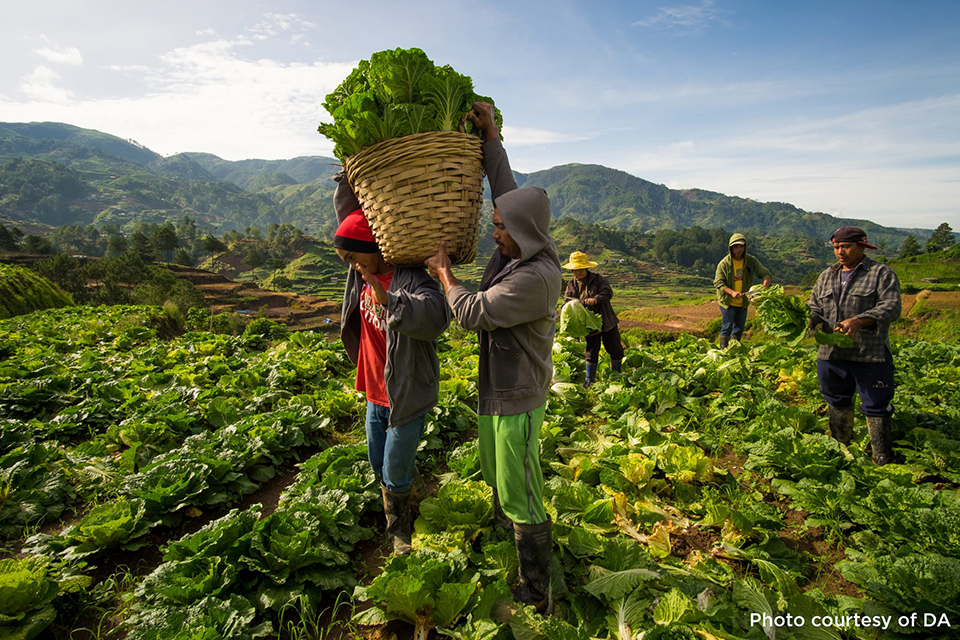
The Department of Agriculture (DA) reports that to date local government units (LGUs) nationwide have bought tons of farm and fishery products worth more than PhP1.58 billion direct from farmers and fishers since the enhanced community quarantine (ECQ) was imposed on March 15, 2020.
“We are indeed happy to report that since the start of the enforcement of the ECQ, around 245 LGUs heeded our call to patronize the products of our farmers and fishers and make these part of food packs distributed to their constituents. This number is certainly growing as we speak,” Agriculture Secretary William Dar said.
The agri-fishery products range from palay, milled rice, corn, vegetables, fruits, pork, chicken, fish, and spices.
Their sales were monitored by the DA’s Regional Field Offices (RFOs) through their respective Agribusiness Marketing and Assistance Division (AMAD).
“The LGUs are our primary partners in cascading our sectoral interventions on production to consumption, marketing included. We would like to involve them in the entire value chain to make sure that our support mechanisms reach targeted beneficiaries,” Dar said.
To focus and strengthen linkages between food producers and the markets, the DA formed four food value chain clusters – Luzon A (CAR and Regions 1 to 3), Luzon B (Regions 4A, 4B, and 5), Visayas (Regions 6 to 8, and Mindanao (Regions 9 to 13).
“Through the clusters, we plan the availability, pre-positioning, and movement of products from the municipal to provincial level, then regional, and finally among clusters.
“The mobility plan looks into the movement of agri-fishery commodities from producers, to traders, processors, and wholesalers/retailers, down to the household consumers,” the DA chief said.
The clusters, with the help of LGUs and other agencies, identify prime agri-fishery commodities and potential markets, monitor the markets, and coordinate relevant concerns to develop location-specific resiliency plans aimed at attaining higher levels of food sufficiency.
“It is the DA’s job to ensure enough supply of food in the country. Our LGUs can count on us to link them to our food producers, while they help us market farmers’ produce and provide every household adequate and affordable food,” Dar said.
Apart from this, the DA has been coordinating with the LGUs since the start of the ECQ in ensuring the unhampered movement of workers and stakeholders in various agriculture and fishery enterprises to ensure continued production and delivery of food, particularly those in highly urbanized areas.
“In all, in partnership with the LGUs, the private sector, and farmers’ and fisherfolk’s groups, we ensure farmers of a ready market and steady income, as well as provide consumers with affordable, healthy, and nutritious food. Along the process, we also help stabilize the prices of basic commodities,” he said.
“We hope that more LGUs will follow suit and may this practice be institutionalized even after the COVID-19 crisis and move on to the ‘new normal’ era,” the DA chief concluded. ### (Myriam Layaoen, DA StratComms)











